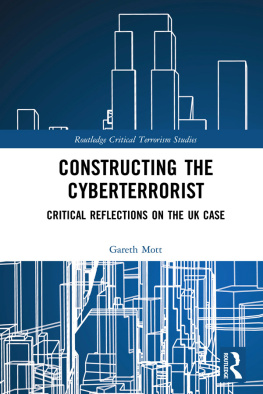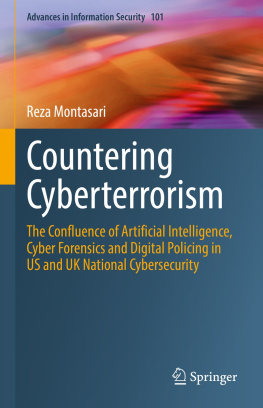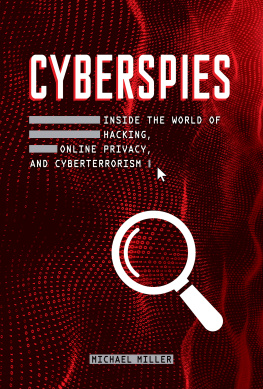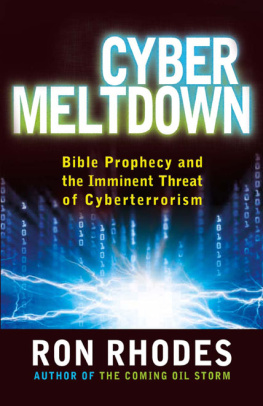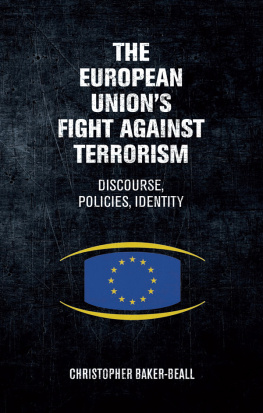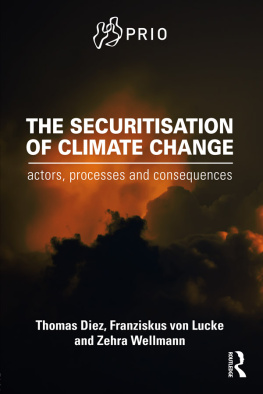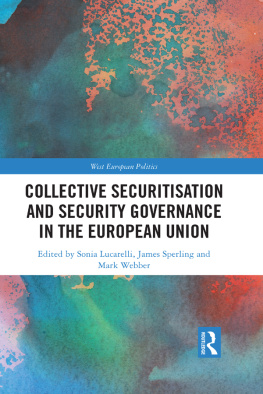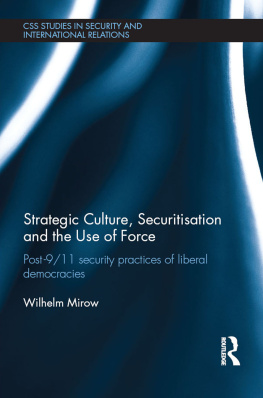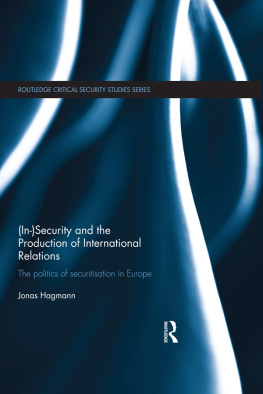Constructing the Cyberterrorist
This book maps and analyses the official British construction of the threat of cyberterrorism.
By using interpretive discourse analysis, this book identifies strands from a corpus of policy documents, statements, and speeches from UK Ministers, MPs, and Peers between 12 May 2010 and 24 June 2016. The book examines how the threat of cyberterrorism was constructed in the UK, and what this securitisation has made possible. The author makes novel contributions to the Copenhagen Schools securitisation theory framework by outlining a tiered rather than monolithic audience system; refining the temporal and spatial conditioning of a securitisation with reference to the distinctive characteristics of cyberterrorism; and, lastly, by detailing the way in which popular fiction can be ascribed agency to fill in an absence of cyberterrorism case studies. He also argues that the UK governments classification of cyberterrorism as a Tier One threat created a central strand upon which a discursive securitisation was established.
This book will be of interest to students of Critical Security Studies, terrorism studies, UK politics, and international relations.
Gareth Mott is a lecturer in security and intelligence at the University of Kent, UK.
Routledge Critical Terrorism Studies
Series Editor: Richard Jackson
University of Otago, New Zealand
This book series will publish rigorous and innovative studies on all aspects of terrorism, counter-terrorism and state terror. It seeks to advance a new generation of thinking on traditional subjects and investigate topics frequently overlooked in orthodox accounts of terrorism. Books in this series will typically adopt approaches informed by critical-normative theory, post-positivist methodologies and non-Western perspectives, as well as rigorous and reflective orthodox terrorism studies.
Russias Securitization of Chechnya
How War Became Acceptable
Julie Wilhelmsen
A Critical Theory of Counterterrorism
Ontology, Epistemology and Normativity
Sondre Lindahl
Narratives of Political Violence
Life Stories of Former Militants
Raquel da Silva
Islam and Sectarian Violence in Pakistan
The Terror Within
Eamon Murphy
Writing Southeast Asian Security
Regional Security and the War on Terror after 9/11
Jennifer Mustapha
Constructing the Cyberterrorist
Critical Reflections on the UK Case
Gareth Mott
For more information about this series, please visit: www.routledge.com/Routledge-Critical-Terrorism-Studies/book-series/RCTS
First published 2020
by Routledge
2 Park Square, Milton Park, Abingdon, Oxon OX14 4RN
and by Routledge
52 Vanderbilt Avenue, New York, NY 10017
Routledge is an imprint of the Taylor & Francis Group, an informa business
2020 Gareth Mott
The right of Gareth Mott to be identified as author of this work has been asserted by him in accordance with sections 77 and 78 of the Copyright, Designs and Patents Act 1988.
All rights reserved. No part of this book may be reprinted or reproduced or utilised in any form or by any electronic, mechanical, or other means, now known or hereafter invented, including photocopying and recording, or in any information storage or retrieval system, without permission in writing from the publishers.
Trademark notice: Product or corporate names may be trademarks or registered trademarks, and are used only for identification and explanation without intent to infringe.
British Library Cataloguing-in-Publication Data
A catalogue record for this book is available from the British Library
Library of Congress Cataloging-in-Publication Data
Names: Mott, Gareth, author.
Title: Constructing the cyberterrorist: critical reflections on the UK case /
Gareth Mott.
Description: Abingdon, Oxon; New York, NY: Routledge, 2020. | Series:
Routledge critical terrorism studies | Includes bibliographical references
and index.
Identifiers: LCCN 2019036271 (print) | LCCN 2019036272 (ebook) |
ISBN 9780367223557 (hbk) | ISBN 9780429274480 (ebk)
Subjects: LCSH: CyberterrorismGreat Britain. | Cyberterrorism
PreventionGreat Britain.
Classification: LCC HV6773.3.G7 M67 2020 (print) | LCC HV6773.3.G7
(ebook) | DDC 363.325dc23
LC record available at https://lccn.loc.gov/2019036271
LC ebook record available at https://lccn.loc.gov/2019036272
ISBN: 978-0-367-22355-7 (hbk)
ISBN: 978-0-429-27448-0 (ebk)
Typeset in Times New Roman
by Apex CoVantage, LLC.
In guide books and across the contemporary print media, cautionary tales of the pitfalls of doctoral and postdoctoral research abound, including, amongst myriad other ailments, the potential stress, the impending isolation, the writers block, and the perceived imposters syndrome. I would be mishandling the truth if I declared that these purported symptoms are entirely whimsical; folklore is generally formed of both fiction and historical precedent. I am, however, delighted to report that these fears should be muted; the life of a lecturer is tremendously fulfilling! Nonetheless, this fulfilment cannot be sought through solitary endeavours. I may be detailed as the sole author of this book, but had I stumbled forward in a unitary fashion, this project simply would not have come to fruition. I have tremendous gratitude for the patience and support of colleagues, friends, and family who have guided my journey into academia.
I would like to express particular thanks to Christopher Baker-Beall, whose words of wisdom and guidance have been instrumental in developing the courage to complete this project. Chris, you are the model of a doctoral supervisor. I would also like to note my sincere gratitude to several key individuals who have provided support and encouragement that has been, and continues to be, absolutely invaluable. To Lee Jarvis, Maura Conway, Stuart MacDonald, Richard Jackson, and Tarik Oumazzane: thank you so, so much.
I am indebted to the School of Social Sciences at Nottingham Trent University for its generous provision of the scholarship that has enabled this project to become a reality. I am also extremely grateful to the University of Kent for welcoming me into the School of Politics and International Relations and the interdisciplinary Institute of Advanced Studies in Cyber Security and Conflict. Just as the foreseeable future of human civilisation will to a great extent be driven through binary code, the future of Social Science is just as likely to be an interdisciplinary one. It is a great pleasure and privilege to be even just a small part of this story.
I would also like to express my sincere thanks to Routledge, and in particular to Andrew Humphrys and Bethany Lund-Yates, for your support and guidance through the development of this book.
On a personal note, I am profoundly thankful to the generosity and support of those closest and dearest. To Karen and Richard, your patient parenthood and unwavering friendship will always be irreplaceable. To Janrea, you are the beacon of light guiding me each and every day.
If I can thank inanimate products, entirely non-flippant thanks go to Lavazza coffee for fuelling the researching and writing of this book and also to my somewhat abused IBM 88 Model M keyboard. Your mechanical keys have been mildly irritating housemates and neighbours for years, but the clacks are music to my ears. You have been my partner in crime through my A-levels, my bachelors degree, my masters degree, my PhD, and this monograph. Someday, I will let you retire. But not quite yet.

